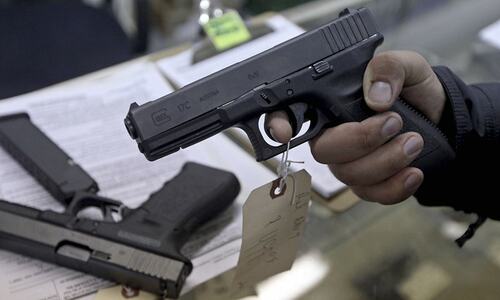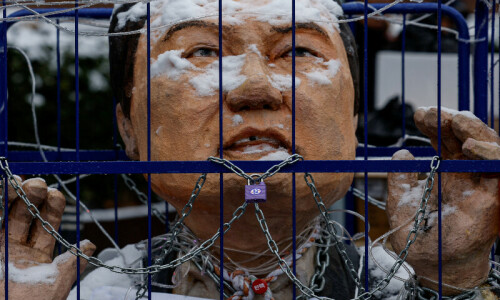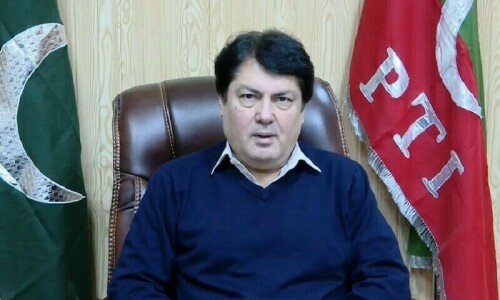• Cabinet to approve new rules
• Governor’s role to be ended
• CM to appoint CPLC chief
• Political influence may impact neutrality
KARACHI: The government of Sindh is planning to take ‘control’ of the Citizens-Police Liaison Committee (CPLC) by bringing it under the administrative control of the provincial home department, it emerged on Saturday.
Sources said a draft detailing composition of the CPLC, terms of reference, duties, responsibilities, functions and rules has been prepared under Section 168 of the Sindh Police Act of 2019.
The proposed rules are likely to end the role of the Sindh governor in the CPLC affairs, as an ‘Executive Council’, whose chairman will be “nominated by the chief minister” would have powers to appoint or remove the CPLC chief.
The council will act as the ‘supervisory body of the CPLC and provide policy guidelines and oversee its functioning’, according to official sources and documents reviewed by Dawn.
The plan, which will soon be approved by the Sindh cabinet, has triggered fears among quarters concerned that the citizens’ body fighting against crimes since 1990 may come under political influence that will “compromise its neutrality, image and credibility” as the Sindh government had already rendered the Public Safety and Police Complaints Commission ‘redundant’.
Official sources familiar with this development said Sindh Chief Minister Murad Ali Shah had approved the summary of the home department for placing the draft of the CPLC Rules 2021 for consideration of the cabinet as the “power to make rules under Section 168 of the Sindh (Repeal of the Police Act, 1861 and Revival of Police Order, 2002) (Amendment) Act, 2019 vests in the government”, which means cabinet as per an apex court’s judgement.
The sources said these CPLC rules were presented before the cabinet by the home department for approval. However, the cabinet wanted some more clarifications on certain clauses of the rules, thus, the same were referred to the department for making modifications thereto and resubmitting it.
A senior CPLC official, who wished not to be named, said that for the past 33 years, the CPLC had been working as a neutral and apolitical body and its statistics about crimes were based on facts and not aimed at pleasing any government.
“We are a brand now and it has been an unprecedented thing all over the world that such a voluntary organisation of the citizens has contributed so much for law and order,” he said, adding that regardless of the new rules the neutrality of the organisation must be maintained.
‘Changed circumstances’
The provincial government has claimed that the proposed changes to the basic structure of the CPLC were justified on account of changing circumstances.
An official document reads: “Since the structure, composition, ToR, duties, responsibilities and functions, etc, of the CPLC were notified long ago and circumstances and the situation on the ground have changed…therefore, the home department is of the view of re-notifying the CPLC(s) in the light of the new law and the changed circumstances.”
The papers said that the CPLC initially came into being by ‘amending’ Police Rules, 1934 as a new rule was added through a notification issued by the home department on April 15, 1990.
Since then, the CPLC(s) were notified from time to time and the ‘comprehensive’ charter of the CPLC was notified by the home department through a notification on Dec 23, 2003. The last notification was issued by the department on May 31, 2012.
A former government official familiar with these developments recalled that the CPLC was established in the wake of turbulent times in the metropolis in ‘90s.
Slain PPP chairperson Benazir Bhutto was the prime minister, late Fakhruddin G. Ebrahim was the governor of Sindh and PPP leader and senior lawyer Aitzaz Ahsan was the interior minister.
“Law and order is the subject of the chief minister of Sindh, but it is a vision of Benazir Bhutto that the CPLC should be established at Governor House so that it has some ‘neutrality’ as the post of the governor is supposed to be neutral as being a nominee of the federal government,” opined the official.
Fears of political intervention
The CPLC’s journey started from a single room at Governor House, which went under ‘massive expansion’ over the decades and stood on ‘strong footing’ as serious crimes, like kidnapping for ransom, were controlled to a certain extent by the efforts of the CPLC.
It provided facility to citizens to get their complaints redressed in case the police did not register their FIR and help the victims of street crimes to get their snatched/stolen cars/bikes and cell phones recovered. The body assisted the law enforcers in investigation with the help of technology as it compiled the data of crimes, conducted analysis of crime patterns and suggested hotspots to enhance patrolling in the certain areas.
The former official recalled that a comprehensive charter was prepared in 2003, which included a board of governors comprising eminent personalities belonging to different professions. This charter was partly aimed at holding the CPLC chief ‘accountable’ and ‘providing support to him’ in case wrong allegations were levelled against him.
One former official of the CPLC, who also wished not to be named, said it had been the practice that the CPLC chief would recommend names of members and the advisory body to the home department that would issue a notification after approval of the chief minister.
He said they had apprehensions that under the proposed rules, the CPLC would come under direct control of the home department, the home minister and the chief minister.
Office may be relocated
Another apprehension expressed was pertained to possible shifting of the CPLC office from Governor House to ‘barracks/Sindh secretariat’.
The former official said when a phone call was made from Governor House it carries ‘some weight’.
The official warned that if the CPLC office was shifted and relegated to as a ‘subordinate body’ of the home department; it might meet the same fate of Public Safety and Police Complaints Commission that had been rendered ‘almost redundant’ by the present government.
However, a source in the CPLC, who was familiar with the proposed rules, said that the authorities concerned had told them that the ‘neutrality, image and credibility’ of the CPLC would not be ‘compromised’.
Regarding possible shifting of the CPLC, the sources were told that the public safety commission’s office might be located in barracks/Sindh secretariat because it had no office, but the CPLC had been working at Governor House since last over three decades and its location would not be changed.
A spokesperson for the Chief Minister said that the CPLC office would not be shifted as Governor House and the CPLC office were ‘property of Sindh government’ and its repair and maintenance was also its responsibility.
He also described it as a ‘strange logic’ that the CPLC might be ‘politicised’ in case if it came under the administrative control of the CM.
He asked as to why this objection was not raised when the incumbent governor himself holding ‘political meetings’ at the Governor House.
The senior CPLC official also opined that it was a good thing that the Sindh government had made the CPLC as part of the Police Act of 2019, treating it as ‘statutory body’.
He regretted that it appeared that the Governor House had become a ‘centre of political arena’ over the years.
Published in Dawn, March 13th, 2022















































Dear visitor, the comments section is undergoing an overhaul and will return soon.